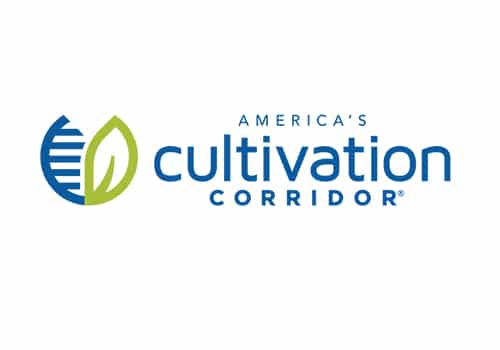Growing the local foods revolution
Can Iowa Choice Harvest bring wholesale changes to Iowa’s produce markets?

JOE GARDYASZ Jun 12, 2015 | 11:00 am
9 min read time
2,142 wordsAg and Environment, Business Record InsiderPenny Brown Huber loves seeing people’s reactions when they first sample the Iowa sweet corn that her company, Iowa Choice Harvest, produces and packages.
“We do a lot of sampling at grocery stores, and it’s fun to watch people taste it,” said Brown Huber, CEO of Iowa Choice Harvest. “It’s almost like a memory comes across their face — ‘there it is, there’s that Iowa sweet corn taste that we all long for.’ Then usually some story follows about how they used to can (fresh produce) with their grandmother. Some Iowa story will always come up.”
The startup company’s Iowa-grown, frozen sweet corn and sliced apples are catching on with an increasingly large mix of wholesale and institutional venues, among them the freezer cases of Fareway and Hy-Vee stores throughout the state and the dining rooms of senior living communities, as well as in school lunches served by the Des Moines Public Schools and in chefs’ creations served at popular downtown restaurants such as Malo and Centro.
Because the produce is picked, transported and frozen all on the same day, Iowa Choice Harvest is able to capture peak flavor and freshness, Brown Huber said. No sugar, salt or preservatives of any kind are added, which makes the products healthful choices, particularly for schools and senior centers seeking to meet nutritional guidelines, she said.
Owned by 13 farmer members, Iowa Choice Harvest operates a packaging facility in Marshalltown that is beginning its third season of operation, and the company is seeking to expand into other lines of produce to grow and package. Its mission statement reads: “To connect our customers with earth-conscious Iowa farmers who grow high-quality fruits and vegetables.”
The wholesale market for Iowa-grown produce has the potential to become a significant revenue source for niche farmers in the state, said Brown Huber, who as an agricultural consultant has worked with hundreds of specialty farmers over the past two decades to develop better local food systems.
After several generations of large-scale farming in Iowa, relatively few people recall the days when small processors canned fresh produce grown in Iowa, she said.
Initiatives such as Iowa Choice Harvest could provide a model for other small farmers in the state who are interested in developing these wholesale markets, said Aubrey Alvarez, director of Eat Greater Des Moines.
According to research by the Leopold Center at Iowa State University, only a small portion of Iowa farmers’ local food sales — about 5 percent — is sold directly to consumers, while institutional buyers made up 17.5 percent of local food purchases. Those buyers include organizations such as restaurants, schools and grocery stores.
“Iowa really lacks the processing that Iowa Choice Harvest offers,” said Tammy Stotts, the Farm to School program coordinator for the Iowa Department of Agriculture and Land Stewardship, which has introduced the company’s products to several school districts statewide, including the Des Moines Public Schools.
“It fills a huge void for us, and the products they package are amazing. It is an easy way to make local foods available and accessible in Iowa — and by having that frozen product, (customers) can serve it year-round.”
Start-up challenges
“I’ve kind of had this journey around local foods for about 20 years now,” said Brown Huber, who has worked with niche farmers across the state in a program she launched in 2001 called “Grow Your Own Small Market Farm.”
“In the course of conducting that, I was meeting all these great farmers coming into this program,” she said. “I started to see this issue that we had the local retail farmers who sold at farmers markets or at farm stands, but we were struggling with the wholesale issue. So I assembled 13 farmers to start talking about the feasibility of starting our own processing plant. They all agreed that would be worth looking at.”
Using two Value Added Grants from the U.S. Department of Agriculture, the group completed a feasibility study and developed a business plan for the business, which they launched in August 2013.
The company has overcome a number of startup hurdles, not the least of which was finding a suitable facility.
“We spent a little over a year looking for a place to build the plant,” Brown Huber said, noting that it was impossible to find any existing food-grade plants to lease. They ended up leasing a former steel plant, which they used to house a food-grade plant built within that facility.
“We hired a plant manager who has an engineering degree, so he was really able to work his way through constructing a plant,” she said. “There’s nothing like it in Iowa; it’s the only plant of its type.”
Locating equipment for the plant was also challenging, both because the scale at which they’re processing is much smaller than the block-long machines that most vendors typically sell, and because the vendors are highly specialized by type of equipment, which made assembling all the pieces quite time-consuming. “We had to find companies that either had smaller used pieces of equipment or were still manufacturing them,” Brown Huber said.
Local farmers
All of Iowa Choice Harvest’s sweet corn is raised by its member-owners, among them Craig and LaVon Griffieon, who farm on their family’s century farm north of Ankeny.
“Actually, we hadn’t grown sweet corn before, other than for our personal use,” said LaVon Griffieon. The couple harvested 19 acres of sweet corn for Iowa Choice Harvest last year, after producing 30 acres in 2013. Though they’re not yet seeing year-over-year growth in acres planted for the company, the couple is optimistic about its long-term prospects.
“Hopefully it increases the availability of Iowa produce year-round,” she said. “And it’s nice to see the economic viability of processing our local produce here. Hopefully when this gets perfected it can be replicated across the state, so that it truly can be local.”
Brown Huber said finding apple growers in Iowa was not difficult, but it’s challenging for the farmers to find the labor needed to get mass quantities of apples to market on a timely basis. The apples are hand-picked from 10 orchards throughout the state.
“I think we could have a thriving orchard industry, but then we get to this issue of labor,” she said. “We did have some orchards say to us, ‘Now that I have worked with you, I would consider only being a wholesale orchard, if I knew you would buy from us.’ For me, that was it — there’s the wholesale farmer; he just arrived. Some people will be really suited for wholesaling.”
Another startup operation, FarmTable Delivery in Harlan, is working with farmers across Iowa and into eastern Nebraska to deliver their produce to wholesale buyers in Greater Des Moines and around the state. In addition to produce, FarmTable Delivery also delivers value-added farm products such as breads, dairy products, pasta, preserves and condiments.
“We’re delivering to restaurants, schools, hospitals and grocery stores,” said Ellen Walsh-Rosmann, who with her husband operates the business along with a family farm. The couple recently moved the business into a 4,500-square-foot warehouse in Harlan that will provide a facility for farmers to wash, package and refrigerate produce for delivery.
Though their schedule varies weekly, in a recent week the company delivered produce from about 40 farms, using a refrigerated truck the couple financed through a Kickstarter campaign last fall. In Greater Des Moines, they deliver produce to Campbell’s Nutrition, Gateway Market, Local Yocals, some Hy-Vee stores and the Wallace Centers of Iowa.
Walsh-Rosmann said she is just beginning to discuss some possible partnerships with Brown Huber at Iowa Choice Harvest.
“I think it would make sense for us to deliver her finished goods or even her raw goods,” Walsh-Rosmann said.
What’s ahead
With its Marshalltown plant, Iowa Choice Harvest has the capacity to process thousands of pounds of produce at a time. Currently, it sells to about 350 institutional customers that extend into Missouri, Illinois and Nebraska.
“That is a huge number after just a year,” Brown Huber said. “It’s a lot to manage and support, because we’re trying to build our brand. We have think about not just this year, but also about next year and the following year.”
The company is still trying to better understand its market to match up supply and demand accurately. “When you take a retail farmer who has raised an acre of sweet corn, and now he’s raising 40 acres of sweet corn, that’s very different. So we’re all kind of learning.”
Brown Huber also hopes to engage with other growers who could utilize the plant. “Maybe it’s a way we can help them take their operations to a larger scale,” she said. “Ideally, what we’ll get to as we continue to mature is that we will be processing from late spring through the fall. But we’re not quite there yet.”
One of the company’s primary objectives this year is to add Iowa-grown carrots as another product line for grocery stores, as well as to increase sales of its corn and apples statewide.
“Schools and retirement communities really want (carrots), and there are some restaurants that would really love to have Iowa carrots,” Brown Huber said.
The company plans to grow and process more aronia berries after testing growing them last fall. Asparagus, strawberries, blueberries and blackberries may also be added to the mix of vegetables and fruits processed.
“I’d love to see us be able to be partners with berry farmers and really growing the berry food industry here, because we really have great soil for berries,” Brown Huber said.
“It’s really kind of like closing the loop,” she said. “Before, if a farmer raised something, he knew he was probably going to have to sell it all himself. Now, with our plant, they don’t have to do it all, which is pretty awesome.”
Restaurants, schools are customers
Matt Howard, executive chef at Malo, said his kitchen incorporates Iowa Choice Harvest’s corn into many of its side dishes, such as its corn salsa and jalapeno barbeque cream corn.
“It’s absolutely delicious and responsibly raised,” said Howard, whose restaurant has a policy of sourcing the best produce and buying locally grown foods whenever possible. “And we like that it’s all owned by the people ultimately producing the product, so everyone has a part in the final product.”
Like the corn, which has no added sugar, salt, or other additives, the apples are frozen without anything added to them.
“When you cook with them, you don’t have to use as much sugar, so there are a lot of health benefits associated with our products,” Brown Huber said. “Schools love this product because they can reduce their sugars by half. Some of the retirement communities are making fresh applesauce with them; their residents can’t get enough of it.”
Better nutrition in the city
Eat Greater Des Moines is preparing to launch a program this month to deliver fresh produce to office workers in downtown Des Moines. The initiative, known as a modified community shared agriculture (CSA) box program, will include not only produce from multiple farms across the state, but also dairy, meat and protein products on a year-round basis.
“It’s to make people aware that they can get locally produced foods year-round,” said Aubrey Alvarez, director of Eat Greater Des Moines. The program is modeled after a similar CSA box program in the Decorah area, she said.
“We have about 20 different producers that will be sourcing that box.” The produce will be picked up and distributed with assistance from FarmTable Delivery, a startup produce delivery service in Harlan. The initial worksite drop-offs for the pilot phase will be Principal Financial Group and Easter Seals. After working through the kinks in the first 12 weeks, deliveries will be added at other worksites as well as the Des Moines Social Club, which will be the aggregation site for the boxes.
The 20 shares at both of the first two sites have sold out and there’s a waiting list, Alvarez said. She hopes to expand the program to between 160 and 200 shares this year, meaning that many boxes would be delivered per week downtown.
For more information about the program or to become a CSA worksite, contact Alvarez at Eat Greater Des Moines.
By the Numbers: Food Hubs in the U.S. and Iowa
Number of food hubs in the United States: 302
Percent of food hubs operating as:
Private businesses 40%
Nonprofits 30%
Cooperatives 20%
Number of food hubs in Iowa: 15
Average annual purchase by institutional buyer from Iowa food hubs: $179,845
Total local food purchases from Iowa food hubs: $13.1 million
Sources: “Report to Congress: Trends in U.S. Local and Regional Food Systems, January 2015, U.S. Department of Agriculture; 2013 Economic Impacts of Iowa’s Regional Food Systems Working Group, Leopold Center for Sustainable Agriculture









